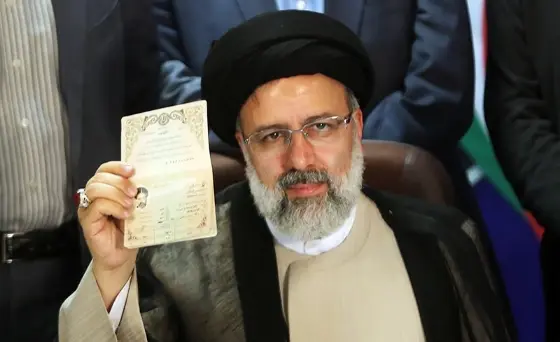Iranian President Ebrahim Raisi died in a helicopter crash on Sunday near Varzaqan, alongside other senior officials, after inaugurating a new dam on the Iran-Azerbaijani border. His death came as a significant shock, given his position and potential as a future Supreme Leader of Iran.
Iran announced five days of mourning following Raisi’s death, reflecting the impact of this event on the nation. Supreme Leader Ali Khamenei appointed Mohammad Mokhber as interim president. Mokhber, who led the Supreme Leader’s charitable conglomerate, is expected to maintain continuity in the government’s operations.
Raisi’s death adds to the uncertainty surrounding the succession of Supreme Leader Ali Khamenei, who is aging and has been a central figure in Iranian politics for decades. The disqualification of moderate figures like former President Hassan Rouhani from legislative elections has already weakened the position of reformists. The power dynamics are likely to favor hardliners, including potential candidates like Khamenei’s son, Mojtaba Khamenei, and other conservative figures within the regime and the Islamic Revolutionary Guard Corps (IRGC).
The reaction to Raisi’s death has been mixed. While the government declared a period of mourning, some segments of the population expressed relief, given Raisi’s harsh crackdown on protests and human rights abuses during his tenure. The widespread disapproval of his administration highlights the deep divisions within Iranian society.
Known for his hardline stance and controversial past, Raisi’s presidency was marked by significant domestic and international challenges.
He grew up in a clerical family and rose through the ranks of Iran’s judicial system, holding various significant positions, including Prosecutor of Tehran and Chief Justice of Iran from 2019 to 2021.
Raisi’s legacy is one of deep divisions within Iran and a contentious role on the global stage, reflecting the complexities and challenges of Iranian politics and its judiciary.
He was a member of the so-called “death committee” responsible for the execution of thousands of political prisoners in 1988. These executions targeted members of opposition groups, primarily the People’s Mojahedin Organization of Iran (PMOI) and other leftist groups. Human rights organizations and United Nations rapporteurs have accused Raisi of crimes against humanity for his role in these events, earning him the infamous nickname “Butcher of Tehran” for his role in the 1988 executions of political prisoners, an act for which he was sanctioned by the United States and criticized by international human rights organizations.
Raisi was elected president in 2021 in an election that was widely seen as rigged to favor him, securing about 63% of the vote. His tenure saw Iran intensify uranium enrichment, reduce cooperation with international nuclear inspectors, and deepen its alliances with Russia and proxy groups in the Middle East. Domestically, his presidency was marred by significant protests, most notably the widespread unrest following the death of Mahsa Amini in 2022, which sparked the “Woman, Life, Freedom” movement.
His foreign policy was characterized by a confrontational stance towards the West and support for regional allies. Iran’s missile and drone attacks on Israel during the Gaza conflict and continued support for groups like Hezbollah and the Houthis underscored this approach. Raisi’s administration was also noted for its deadlock with the U.S. over the Joint Comprehensive Plan of Action (JCPOA), the international nuclear agreement, intensifying uranium enrichment and reducing cooperation with international nuclear inspectors.
The new leadership is expected to continue this policy trajectory, maintaining a confrontational posture towards the West while seeking to bolster alliances within the region. However, any significant diplomatic breakthroughs, especially regarding the nuclear deal, remain unlikely in the near future.
Raisi’s career in Iran’s judiciary was marked by his involvement in suppressing political dissent. As Prosecutor General and later as Chief Justice, he oversaw numerous cases against political activists, journalists, and other dissidents. His tenure in these roles was characterized by harsh crackdowns on protests and dissent, further cementing his reputation as a hardliner.
His record on human rights was widely criticized. Under his watch, Iran continued to carry out a high number of executions, including those of juvenile offenders and individuals convicted of non-violent drug offenses. Amnesty International and other human rights organizations frequently condemned Iran’s human rights abuses during his time in the judiciary and presidency.
These factors combined to make Raisi a polarizing and contentious figure, both within Iran and on the global stage, due to his association with severe human rights abuses, his hardline judicial and political actions, and his aggressive foreign policy stance.
Raisi’s sudden death has significant implications for Iran’s political landscape and future direction.
Iran’s economy is struggling with high inflation, currency devaluation, and a significant budget deficit. These challenges have been exacerbated by international sanctions and Iran’s support for Russia in the Ukraine conflict.
Public discontent remains high, as evidenced by the low approval ratings for both the president and parliament, and record low voter turnout in recent elections. This economic instability and public dissatisfaction will continue to pressure the new administration.
Raisi’s death is a pivotal moment for Iran, potentially setting the stage for significant shifts in both domestic politics and international relations, while the immediate future is likely to see a continuation of the current hardline policies.
